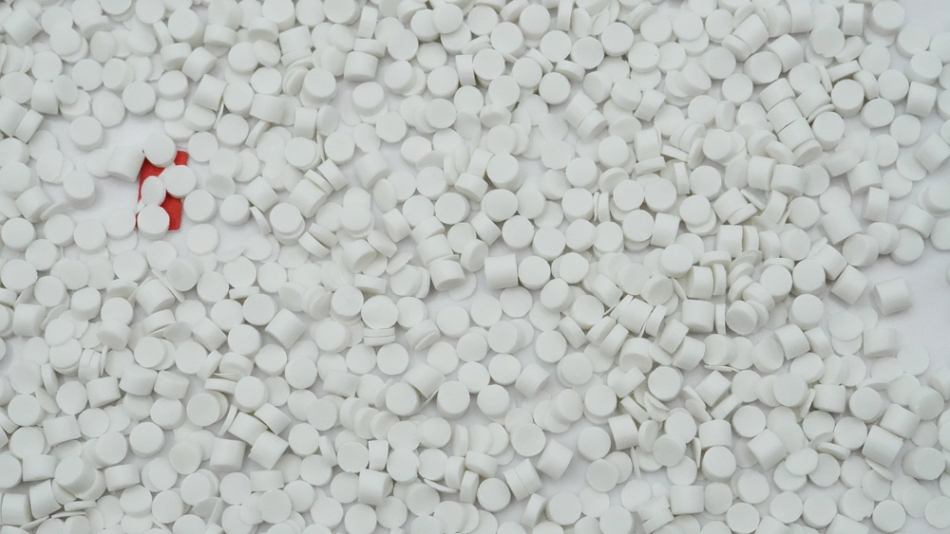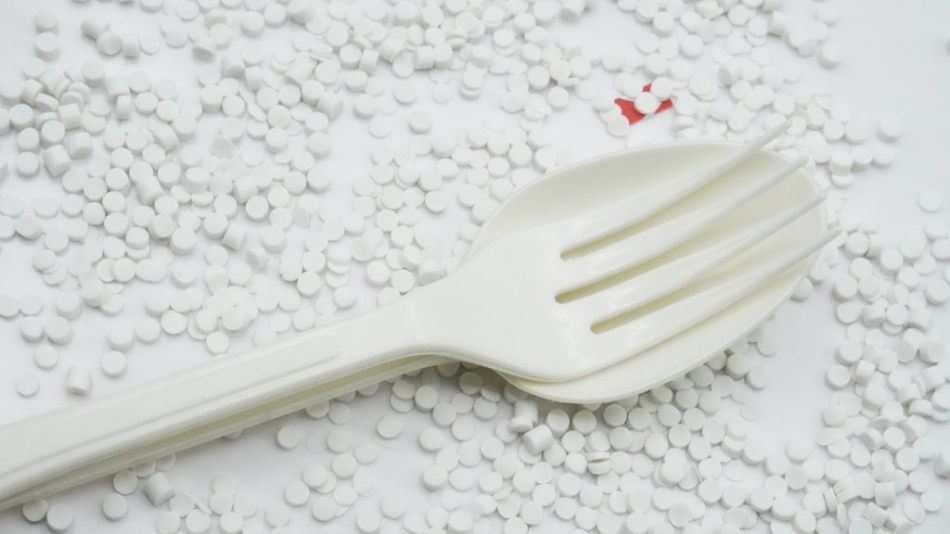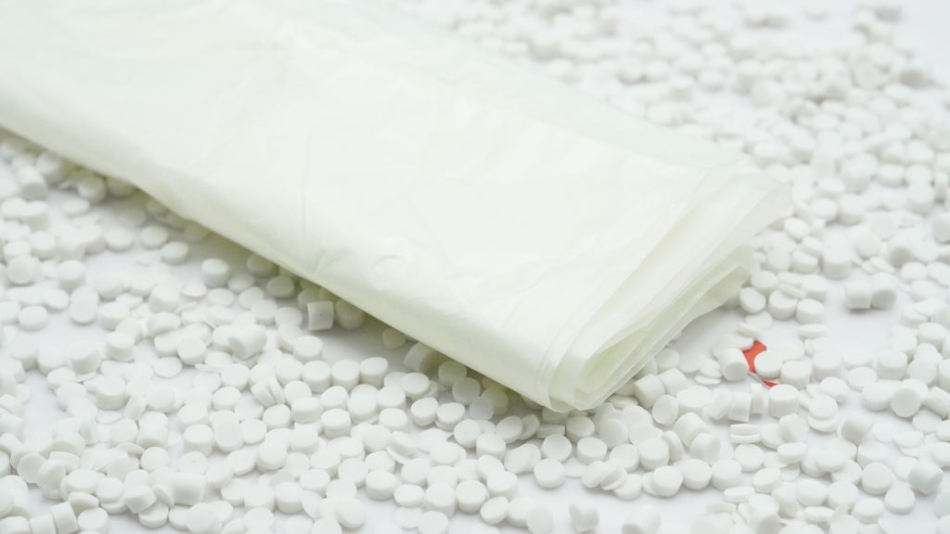When calcium carbonate filler has successfully demonstrated its vital role in the plastic industry, bio filler masterbatch seems to be unfamiliar to many manufacturers. In this article, let’s take a look at this substance to see if you have missed an effective material solution.
As human’s awareness regarding environmental problems, especially plastic waste has been significantly rising over the last decade, a large number of consumers have switched to eco-friendly products. This eventually puts plastic manufacturers under pressure: get adapted to survive or die.
Read more: What is filler masterbatch and how it is applied to your production?
Well, the answer is yes and no. It’s yes because bioplastic functions as the resin for bio filler masterbatch. This is a type of material produced from renewable biomass sources, such as vegetable fats and oils, corn starch, straw, woodchips, sawdust,... The introduction of bio-resin allows end-products to be biodegradable after use, thus minimizing the harmful effects on the environment.
However, bio filler is just simply named after its category - filler masterbatch and not created by filler masterbatch, but some specific fillers such as talc, barium or calcium carbonate (CaCO3). Depending on end-products’ properties, a suitable formula and loading rate will be determined to ensure it can suit best.
 Bio filler masterbatch
Bio filler masterbatch
Bio filler masterbatch is a mixture of bio-resin, specific fillers (calcium carbonate powder, talc powder, barium powder,...) and additives in different formulas to completely fulfill end-products requirements.
Thanks to its composition, bio filler masterbatch offers tremendous benefits to not only end-products, but also the manufacturing process.
The embedding of calcium carbonate (CaCO3) powder into bio filler masterbatch reduces the amount of bioplastic consumed, which is relatively high-expense, thus helping manufacturers save costs. Furthermore, as CaCO3 is a good thermal conductive, it considerably shortens the product cycle and minimizes energy consumption, which facilitates production efficiency
 CaCO3 bio filler masterbatch helps reduce production costs
CaCO3 bio filler masterbatch helps reduce production costs
A common misperception of most manufacturers is the use of bio-filler masterbatch comes at the cost of mechanical degradation. In fact, end-products’ original properties are completely preserved since bio filler contains a small amount of processing aid additive. Hence, its application hardly afflicts end-products’ properties.
Moreover, by adding bio filler containing talc powder, end-products are provided with great stiffness, flexural durability, less shrinkage, and good thermal conductivity. Meanwhile, barium sulfate is applied to increase the level of whiteness and transparency of end-products.
Not only offers end-products with quality enhancements, bio filler masterbatch also functions as a processing aid additive to streamline the blown film process. Very often, the blown film phase of PBAT resin is interrupted by the adhesion of film layers. To fix this, manufacturers can apply a small proportion of 4-5% bio filler masterbatch into the manufacturing process to reduce the blocking between them, thus improving the effectiveness of the production.
 Bio filler masterbatch also functions as a processing aid additive
Bio filler masterbatch also functions as a processing aid additive
As mentioned above, bio filler masterbatch is tailor made based on end-products’ requirements, which also means there are several types of bio fillers. Here are some most popular ones and their applications in the plastic industry.
Calcium carbonate powder has been widely known for its affordability and great mechanical properties. The embedding of CaCO3 powder into bio filler considerably reduces the material cost, thus raising your products’ competitiveness. Plus, it helps increase the printability, especially the anti-blocking effect of end-products thanks to the introduction of processing aid additives.
CaCO3 bio filler is widely used in several industries, such as blown film, extrusion, injection moulding,... Thanks to its great biodegradability, it is specifically preferable in manufacturing single-use products.
Talc powder is another common type of plastic filler. It is also called “soft stone” thanks to its low hardness, which minimizes the abrasion on equipment’s surface during the manufacturing process. Also, talc powder is widely known for its thermal resistance as the result of the platy shape, thus reducing the level of shrinkage.
Hence, the addition of talc powder to bio filler provides end-products with a good thermal resistance, good stiffness and low shrinkage. Like CaCO3 bio filler, talc bio filler is widely used in a wide variety of fields ranging from blown film to extrusion, thermoforming, and injection moulding.
Barium sulfate (BaSO4) is an inorganic compound that is odorless and insoluble in water. It is commonly used as a plastic filler to increase the whiteness of end-products. Being introduced to bio filler, BaSO4 offers them an excellent degree of transparency, along with a good dispersion and light resistance.
Accordingly, BaSO4 bio filler is specifically preferred in the retail industry (shopping bags, roll bags,...), F&B (food packaging films,...) and agriculture (mulching film, greenhouse films,...).
Though in terms of components, they are different from each other, they share a common in the great biodegradability, thus making it an ideal solution to the environmental pollution and green consumption. Like other types of filler masterbatches, bio filler masterbatch is tailor made based on customer’s needs. Depending on each end-product’s requirements, a suitable type of bio filler with specific formula is determined. This customization ensures they can fit well with the end-products.
Having been developing for over 13 years, EuroPlas has become one of the leading plastic filler manufacturers in the plastic industry. We take pride in providing a wide variety of filler masterbatches. In which bio filler masterbatch (also known under the brand name BiOMates) is one of our latest innovations.
With a composition of bioplastic resins and other fillers, EuroPlas bio filler offers end-products a great biodegradability and significant mechanical properties enhancements. Currently, EuroPlas supplies 3 main types of BiOMates for the plastic market include calcium carbonate (CaCO3) bio filler, barium (BaSO4) bio filler, and talc bio filler. Our products are widely used in several industries such as blown film, injection moulding, extrusion,... by thousands of manufacturers worldwide.
For further details and consultation, please contact us!